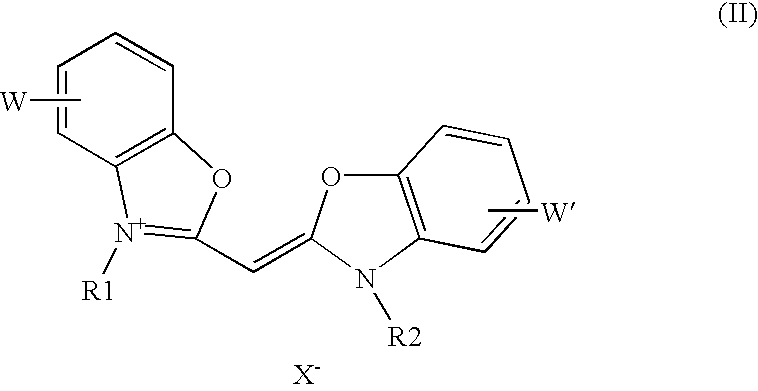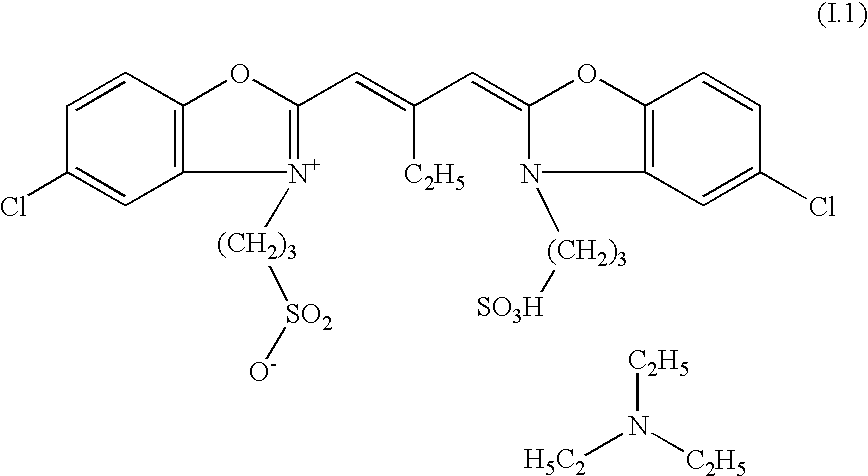Radiographic film material and intensifying screen-film combination
a technology of film and film, applied in the field of silver halide photographic lightsensitive materials, can solve the problems of increasing the minimum density of residual color making, deviating from the desired outlook of processed images, and more both become exhausted, so as to reduce the dependence of covering power and improve dependence.
- Summary
- Abstract
- Description
- Claims
- Application Information
AI Technical Summary
Benefits of technology
Problems solved by technology
Method used
Image
Examples
Embodiment Construction
While the present invention will hereinafter be described in connection with preferred embodiments thereof, it will be understood that it is not intended to limit the invention to those embodiments.
1. Emulsion Preparation
To a solution of 7.5 g of oxidized gelatin, free from Ca-ions, in 3 l of demineralized water at 25.degree. C., adjusted to a pH of 1.8 by adding H.sub.2 SO.sub.4 and a pBr of 2.39 by adding a diluted solution of potassium bromide, stirred up to a rate of 700 r.p.m., were added by a double jet method aqueous solutions of 1.96 M AgNO.sub.3 (hereinafter referred to as A1) and 1.96 M KBr (hereinafter referred to as B1): 4.2 ml of A1 and 4.2 ml of B1 were added in a time interval of 30 seconds. After a physical ripening time of 90 seconds the temperature was increased up to 45.degree. C. over a period of 30 minutes, followed by another 10 minutes during which the temperature was held at 45.degree. C. and after which a solution of 50 g of gelatin (oxidized gelatin, free f...
PUM
| Property | Measurement | Unit |
|---|---|---|
| wavelength | aaaaa | aaaaa |
| wavelength | aaaaa | aaaaa |
| absorption wavelength | aaaaa | aaaaa |
Abstract
Description
Claims
Application Information
 Login to View More
Login to View More - R&D
- Intellectual Property
- Life Sciences
- Materials
- Tech Scout
- Unparalleled Data Quality
- Higher Quality Content
- 60% Fewer Hallucinations
Browse by: Latest US Patents, China's latest patents, Technical Efficacy Thesaurus, Application Domain, Technology Topic, Popular Technical Reports.
© 2025 PatSnap. All rights reserved.Legal|Privacy policy|Modern Slavery Act Transparency Statement|Sitemap|About US| Contact US: help@patsnap.com



